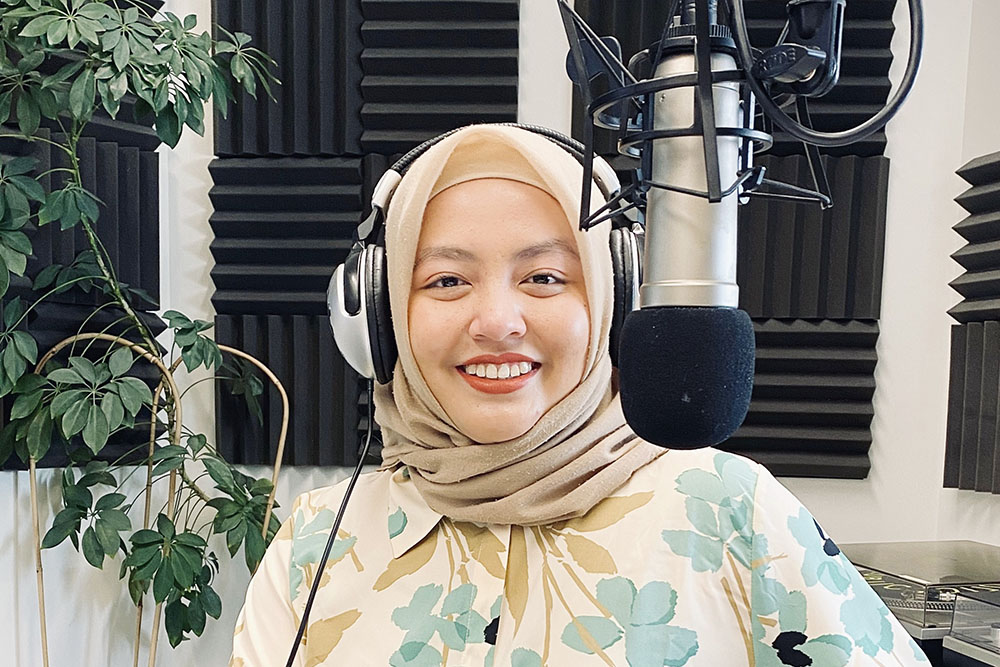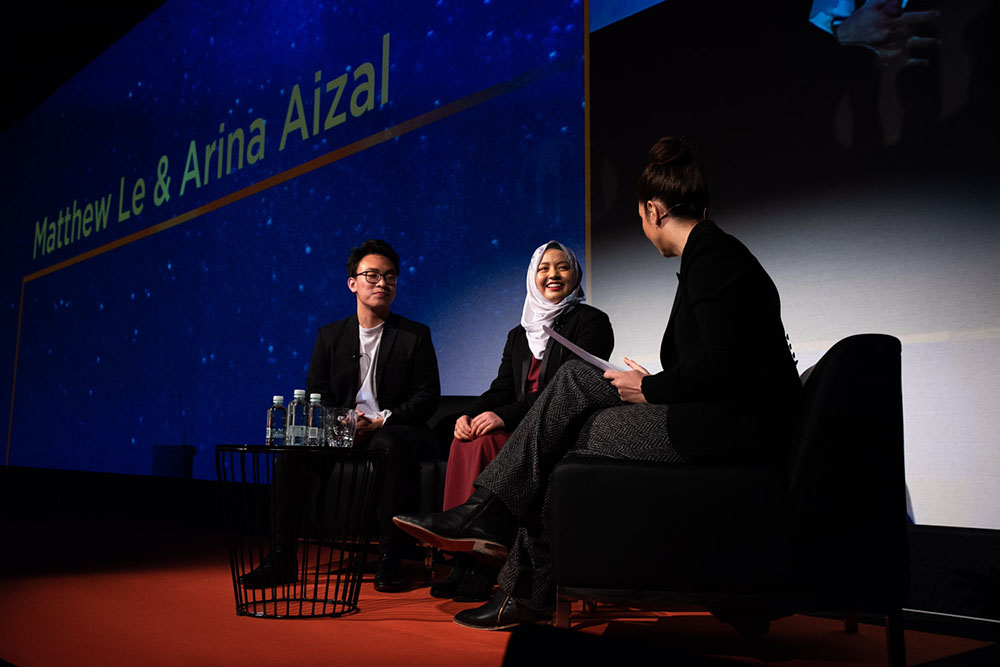
Arina is a podcaster and the Community Connector and Youth Coordinator of Otago Access Radio
Arina Aizal's life took a turning point when she went on a trip to Aotearoa in 2009 to join her dad.
She was 10 when her whole family moved from Malaysia to Dunedin to join her dad, as he undertook a Masters in international studies at the University of Otago.
“We knew that we would be there for long and we were preparing ourselves for the migration - so I had to be enrolled in English classes. I think my parents wanted us to be able to communicate when we were here,” she says.
Arina recalls the first visit to New Zealand - it was very cold. She also remembers feeling different but not different at all: “I guess when you're young, you don't see those differences.”
Arina says her teacher played a huge role in her initial life in New Zealand. Her teacher was conscious that Arina was Muslim and she made sure Arina was taken care of.
“She was a really good teacher. Growing up, I didn't realize that she was supporting me, but now that I'm grown, I think about it a lot.”
Arina tells me that on her visit to Aotearoa, she thoroughly enjoyed her kapa haka classes and I asked her why - “I wasn't sure why and it was easy as well to learn Te Reo because it is quite similar to Malay.” It was perhaps the similarity between her Malaysian culture with the Māori culture that offered her a sense of belonging and connection.
I wanted to know what Arina found different about being in Aotearoa. She believes that growing up in New Zealand helped shape her confidence as she could choose her individuality. This gave her the courage to make her own choices and stand up for what she believed in.
She contrasts this with her Malaysian culture which is more collectivist: “your actions depend on what other people think of you,” she explains.
But she also emphasises the strengths of her Malaysian culture, saying that it brings everyone with you in a good way. She says it was a good balance – “I'm really glad I grew up in both worlds.”
After a year and a half, Arina went back to Malaysia. She describes her return as her “first midlife crisis.”
“Well, I was 12 – so a quarter-life crisis I guess.” We both laugh and I lean in to learn more about this crisis.
“I was always thinking about how fun New Zealand was and I think going back to the Malaysian education system was hard because we didn't have homework when we were in primary school in New Zealand, and I couldn't fit in with my Malay friends. And that was weird because they used to be my friends before I went.”
Arina thought it was perhaps because she now had a new set of glasses on which she would view the world – the “new tinted colour of New Zealand.”
She offers a further glimpse into her life in Malaysia when she returned by stating that she would connect more with people from multicultural backgrounds such as Indian and Chinese – “I felt more comfortable being around people who are different from me because that was what I was used to when I was in New Zealand.”

Arina’s love for Aotearoa brought her back in 2017 to study at the University of Otago.
“That was the happiest day of my life. I felt like, oh, I'm reconnecting with home - Home that I have been away for eight years, and everything looks so different.”
But returning brought new challenges.
“It wasn’t the same New Zealand that I had left behind.”
She felt a sense of loneliness – something she later says was perhaps because her family wasn’t with her this time.
But loneliness didn’t stop her from staying in New Zealand. I wanted to know why. Arina describes life in New Zealand as peaceful and one of balance. She is someone who loves to maintain a work-life balance – and New Zealand allows her to have a good work-life balance.
After graduating in Psychology and Gender Studies from the University of Otago, she now connects diverse multicultural communities and young people in Ōtepoti/Dunedin through radio shows and podcasts as the Community Connector and Youth Coordinator of Otago Access Radio. She also has her own radio show and podcast - ‘The Arinality’ - which focuses on the cultural identities of women in Aotearoa.
Arina believes immigrants bring a “taste of reality” to the people of New Zealand – “we come from different places around the world, we are here, we share our life stories, we share our culture and our differences. We show New Zealand what the real world looks like. It's not like a small bubble that exists.”
I concur with Arina that immigrants from different cultures add diversity: diversity of ethnicity, of thought, of how people work, and diversity of personalities – it’s not just about food or music.
Arina sees the future of Aotearoa New Zealand as a place that accepts the idea of national identity – “we don't see differences, but we see more acceptance of similarities and call ourselves New Zealanders.”
Inspired by Max Adam’s original work, Unquiet Women, through this series Dr Hafsa Ahmed aims to share narratives of remarkable women who immigrated to New Zealand. These stories are rarely told, but each one is unique. Hafsa hopes these stories will bring Asia closer to New Zealand by enabling us to see through the eyes of others and nurturing connections.
Arina Aizal is a member of the Asia New Zealand Foundation's Leadership Network, as well as one of the Foundation's 25 To Watch.
- Asia Media Centre
Author: Hafsa Ahmed
Author Profile


